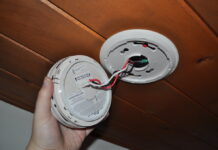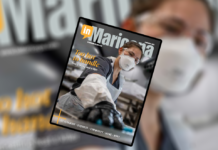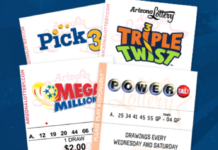
I don’t know the answer to that question, but I don’t mind when people ask me. Friends, family, and acquaintances ask me all the time. It is a good question, but not so easy to answer.
I would suggest that you ask yourself this question first: How serious a photographer do I want to be? If you really want to make beautiful pictures, better than what your little point-and-shoot digital camera is giving you, you should consider a DSLR camera (Digital Single Lens Reflex). With a DSLR you can exchange lenses and have better control over depth of field, which essentially allows for more creative expression.
If you have the vision of growing your photography interest into a serious hobby or even beyond that to a professional level, I would recommend buying a Canon or Nikon DSLR. Both companies are reputable, established and have several cameras and lens choices at a variety of prices. Furthermore, both brands have fixtures that can connect to other off-brand products. For instance, the hot-shoe on top of both Canon and Nikon cameras is the same, and both can connect to camera flashes from almost any brand.
The Sony DSLR cameras only accept Sony on-camera flash systems. That’s not cool. Even worse, you will have to buy all of the Sony accessories because you certainly can’t rent them. Canon and Nikon lenses and accessories are in abundance in every rental house in this country. This is definitely a big plus for going with Canon or Nikon, if you see a long future with photography.
So which is better Canon or Nikon? I don’t know. I personally shoot Canon. About five years ago when I bought my first DSLR, Canon professional cameras were superior to Nikon. That doesn’t seem to necessarily be the case anymore. The debate goes on and on. But I can tell you that I love the efficiency of having the circular selection dial on the Canon, versus the arrow toggle-thingy on the Nikon. I have never had any issues with my two Canons, where I did have the arrow toggle-thingy fall off a Nikon I once borrowed. Either way, here are some important points to consider:
1. Bigger isn’t necessarily better: When buying a camera you should consider that a 12-mega-pixel camera won’t necessarily make better pictures than a 8 mega pixel camera. You will be able to print the 12-mega-pixel file larger without getting ugly pixelation than you will an 8-mega-pixel file, but the image quality is dependent on the quality of the digital sensor in your camera. The digital sensor is essentially what used to be the film in your camera. If you bought cheap film and put it in your camera, your colors and detail were not too good. Likewise, an inferior digital sensor will give you files that are off-color and may not be as sharp. So you have to test your camera. What do the files look like? On-line you should be able to find reviews from professionals who have done that testing for you. Spend some time surfing the web to see what others are saying about the cameras you are looking to purchase.
2. Don’t skimp on a lens: Lenses are very important. A really good camera with a cheap lens will give you mediocre pictures. A cheap camera with a great lens will give you pretty good, if not great, pictures. If you are starting out with a vision to grow in the world of photography, get a lower-end DSLR and really good lenses for that camera. When that camera body becomes pretty much obsolete in a few years, or when you have out-grown it, you step up to a better camera body and bring all your great lenses with you. If you buy high-end lenses you can use them to make pretty pictures for many, many years.
I will probably go through five camera bodies before I need to replace my lens. And I will only need to replace them if Canon makes cameras that won’t accept them anymore, or if I abuse them, and they stop working like they should. I’m counting on both of those things never happening. If you buy cheap lenses in the beginning with the vision to grow as a photographer, you will quickly become unhappy with the quality of your photos due to your lens’ inability to render images clearly. Most brands offer a package deal where you get a camera body and a zoom lens. In general, those lenses are their cheapest ones. In short, I recommend buying a good but inexpensive camera body and that you purchase their high-end lens separately. Often you can find good deals on used camera bodies and lenses at a great savings.
3. Take pictures: Above all, regardless of what camera you have or end up getting, go out and start taking pictures! Play with your camera. Learn how it works. You will only get better by taking more and more pictures. You will be surprised by what you are capable of creating, regardless of the equipment you have, if you just go out and shoot, shoot, shoot. As a photo student I got a job shooting behind-the-scenes photos on a movie set. I borrowed a DSLR from a friend and shot hundreds of photos almost every day for a couple weeks. I progressed more that week as a photographer than I had in the last couple of years of studying.
Do your research, drop the dough and snap away, my friends.
Jake Johnson of Jake Johnson Pictures is a Maricopa-based photography who also offers classes in photographic techniques. He can be reached at 602-291-1093 or via e-mail at [email protected].
Submitted photo
InMaricopa.com is pleased to be bringing you, on a regular basis, timely, useful and informative articles by a wide variety of local experts. Have a topic you’d like to see addressed by a guest expert? Please email it to [email protected] for consideration.









![City gave new manager big low-interest home loan City Manager Ben Bitter speaks during a Chamber of Commerce event at Global Water Resources on April 11, 2024. Bitter discussed the current state of economic development in Maricopa, as well as hinting at lowering property tax rates again. [Monica D. Spencer]](https://www.inmaricopa.com/wp-content/uploads/2024/04/spencer-041124-ben-bitter-chamber-property-taxes-web-218x150.jpg)





